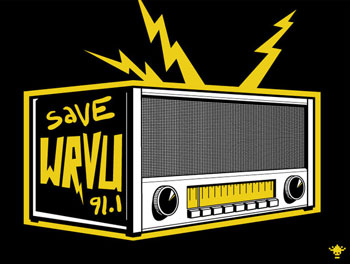
 The controversial sale and flip of Vanderbilt University’s WRVU – 91.1 is the subject of this week’s cover story in the Nashville Scene.
The controversial sale and flip of Vanderbilt University’s WRVU – 91.1 is the subject of this week’s cover story in the Nashville Scene.
For those not in the know, on June 7 WRVU officially stopped broadcasting the eclectic stew of rock, blues, bluegrass, funk, hip-hop, electro and everything else that had made it such a staple for music lovers city-wide. Long owned and maintained by the university’s Vanderbilt Student Communications (VSC), WRVU was sold for $3.35 million to Nashville Public Radio, the parent company of Nashville’s WPLN 90.3. A press release printed on the Scene’s website states that the reasoning behind the sale was to create an endowment for “ensuring VSC’s ability to service the information and cultural needs of the Vanderbilt student population.”
The station’s new call letters are WFCL and it is currently broadcasting an all classical format.
None of this happened overnight. For months a group of VU alumni, students, and passionate supporters called WRVU Friends & Family campaigned with social media, email and fundraising for WRVU to remain on air. According to an article on the Scene’s website, this battle isn’t completely over just yet. The Nashville Public Radio board of directors held a public meeting this morning (6/21) and numerous protestors showed up to support the preservation of WRVU. Nothing appears to have changed after the meeting, but Nashville Public Radio board members at least seem to be open to communication.
Following the sale, WRVU will begin broadcasting on WPLN’s HD3 in fall 2011 as well as online streaming. Naturally, there are passionate arguments both optimistic about and vehemently opposed to the change.
The optimistic view says that listening habits for WRVU’s target demographic have shifted more to online outlets, and the terrestrial FM signal is a leftover of an industry struggling to stay alive. Additionally, VU students will have internship opportunities with the new station group.
But there’s also a compelling argument to be made for keeping the station on terrestrial airwaves. WRVU’s wildly diverse programming stood in stark contrast to a heavily consulted, tight playlisted radio climate. Volunteer DJs–some students, mostly outsiders–played their favorite tunes, from classic hits to spectacularly obscure, and anyone with a radio in Metro Davidson County could hear it.
A couple of questions remain in the wake of WRVU’s disappearance from the airwaves. Firstly, will the adoption of HD Radio and its related hardware take off in the coming months/years, or is it already done? And secondly, which radio outlet will step up to fill WRVU’s shoes in Nashville?



